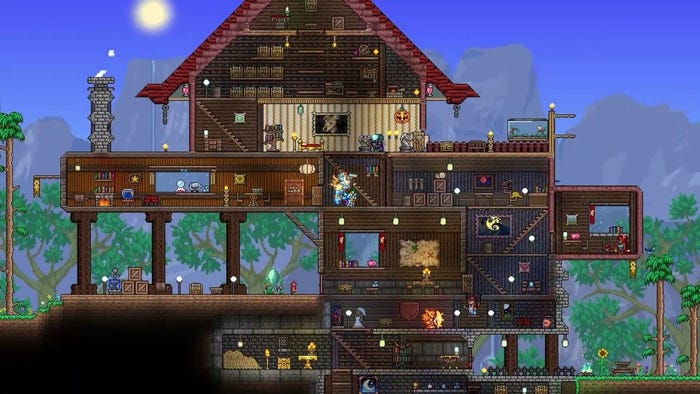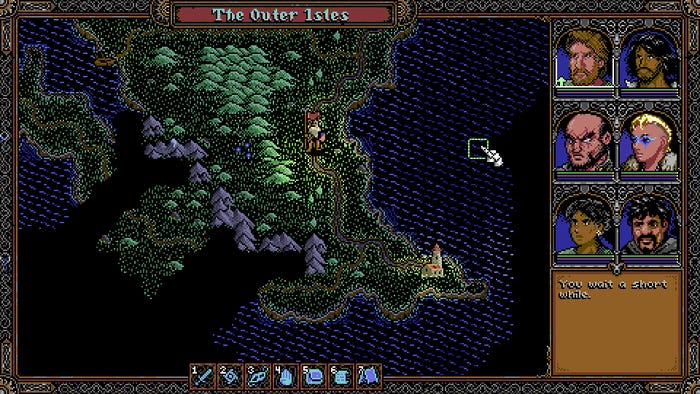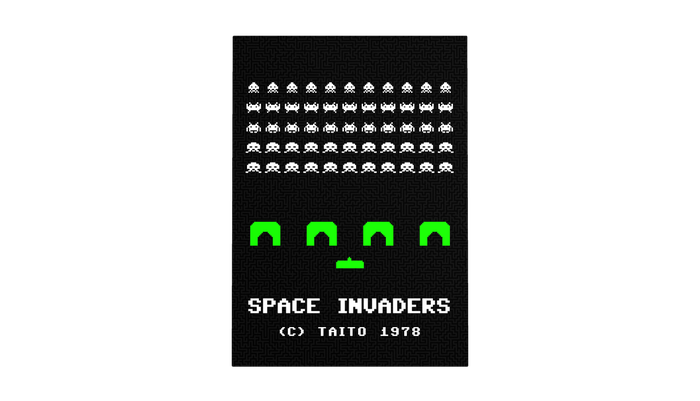
Read More from GDC 2024 | Keep up with the latest game industry event coverage from GDC 2024, including news, talks, interviews, and more from the Game Developer team.
How the small team behind Against the Storm kept scope in check
Determined to keep from overscoping on Against the Storm, developer Eremite Games built a practical process to predict how long it would take to make the "Rainpunk" citybuilder.

At a Glance
- Eremite Games needed to know the amount of time needed to make a game at a scale they'd never shipped at before.
- All developers struggle with predicting this topic. Eremite Games made a rudimentary method to measure project scope.
- Their solution: closely analyze the production of other city builders, and scale their features against that data.
Every developer knows the problem of overscoping. But smaller studios getting their feet under them in the game industry face even bigger challenges. If no one on your team has made a game of a particular size or in a particular genre, how can you predict how much work you'll need to make a successful product?
It's a tough question to answer because while you can estimate how long a given task may take, you can't estimate how long it will take to handle knock-on consequences of a decision made early in development. "Every hastily written line of code and patchwork solution you do today is extra work you have to do tomorrow," observed Eremite Games lead designer Michał Ogłoziński in his 2024 Game Developers Conference postmortem of the "Rainpunk" citybuilder Against the Storm.
There's no surefire way to keep yourself from stumbling around in the dark. But if you're a small studio just starting out, Ogłoziński and his colleagues shared details on their process for scope management in the postmortem.
The key ingredient? A spreadsheet analyzing other games in the citybuilder market.
Against the Storm's unique design decisions made predicting timelines a challenge
Against the Storm isn't like other citybuilders. It has a roguelike structure where players complete (or fail) a "run," earn some resources, then set out again. A run in Against the Storm sees players try to expand out from the center of a world map by building multiple settlements, then withdrawing when a massive storm rolls in.
Settlement-building is the game's bread and butter, and stands out in the citybuilding genre thanks to a number of unique design decisions. Physicality and the location of buildings and villagers matters when building a small town. All resource numbers and costs for goods are transparent to the player. And all of those numbers are detailed in simple terms. "There are no fractions, no big numbers, and no abstract systems," Ogłoziński said.
The city is the player's avatar—and from that concept all good ideas (and problems) flowed.
He said that the team was constantly aware that trying new, unproven solutions like this could create problems down the line for balancing or optimization.
As the team explored these new ways of designing a citybuilder, he said they constantly tried to assess if a feature could add value to the game experience in the least amount of time to implement it.
But how long should you be trying to chase those ideas? To solve that problem, the team turned to spreadsheets.
Analyzing every other citybuilder on the market was a productive task
Developers in the citybuilding genre range in size and scope. The heaviest hitters include Cities: Skylines developer Colossal Order and the smallest ones include Toukana Interactive, makers of Dorfromantik. Even "indie" games in the genre often have a team of experienced professionals behind them, which can shape how fast they can ship features and updates against a lesser-experienced team of the same size.
What do game developers do when they run into any new problem? They make a spreadsheet.
Image via Game Developers Conference.
That spreadsheet helped, but it made the Eremite Games team realize something important: that they were "no smarter, no harder working, no more talented than the developers behind those titles," Ogłoziński said.
"There's no trick we can pull off, and no 'main character' advantage we have. We can't deliver more than they did,'" he said.
A sobering thought, to be sure. But once you've looked at the sea of mountains around you you can start to see which ones look like you can climb. Eremite ultimately turned its gaze to Lion Shield LLC, the studio behind Kingdoms and Castles.
Benchmarking their development process against Lion Shield's helped the team build a plan for development. They set out to make a demo for the game, get it featured in a Steam event, and learn about what players liked (and didn't like) about Against the Storm.
That experience, and the market analysis they did, gave them a benchmark to come up with this budget to pitch to publishers.
Image via Game Developers Conference.
There are a few caveats developers should know about before picking it up and running with it to their next pitch meeting. First, Eremite Games is in Poland, and the cost of operations (salaries, benefits) will vary compared to other countries.
Second, Eremite insisted on the 25 percent "safety net" line item in every publishing deal it took. It was a "safety cushion" to help the team accommodate inevitable delays. Ogłoziński said this non-negotiable line item also tested if potential publishing partners were "even worth considering." It didn't seem like an "extravagant" ask to Eremite Games, but he said many publishers were "stunned" by their demand.
This was the initial budget for Against the Storm. The game's final budget would shift due to the realities of development and in reaction to the 10% cut they would lose on every cash transfer from the United States.
None of this was a stress-free process ("I don't think I was ever so stressed in my life," said Ogłoziński) but the results paid off.
Eremite's method for managing scope on Against the Storm, and using that scope management to plan a reasonable budget, won't work for every developer. But if you're trying to push the boundaries of a beloved genre and need a method to properly plan your work, the process they made will be a great place to start.
Game Developer and Game Developers Conference are sibling organizations under Informa Tech.
About the Author(s)
You May Also Like







.jpeg?width=700&auto=webp&quality=80&disable=upscale)



.jpg?width=700&auto=webp&quality=80&disable=upscale)




